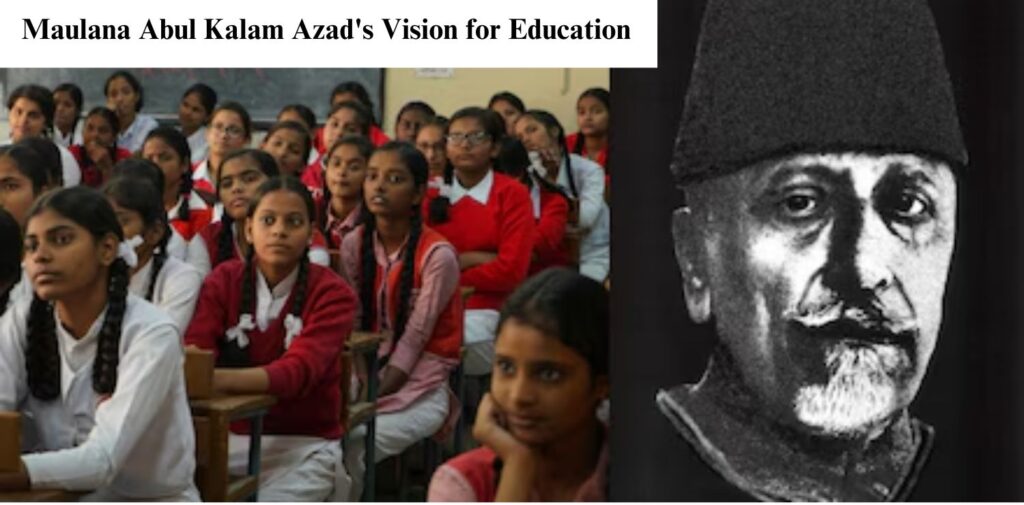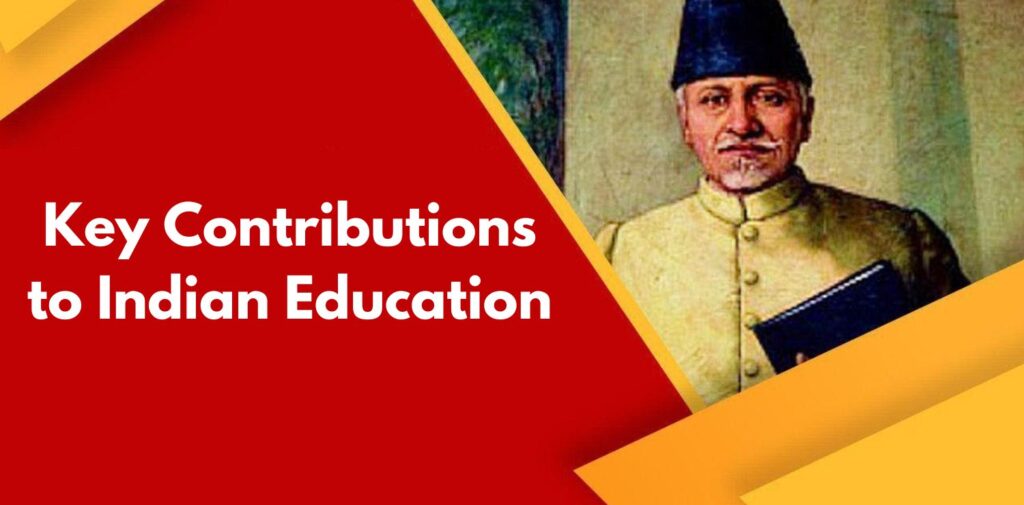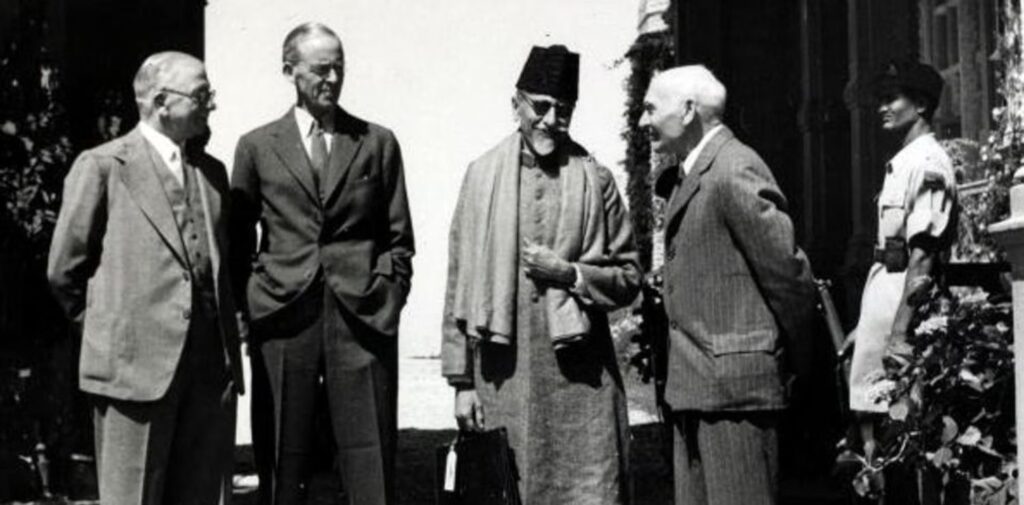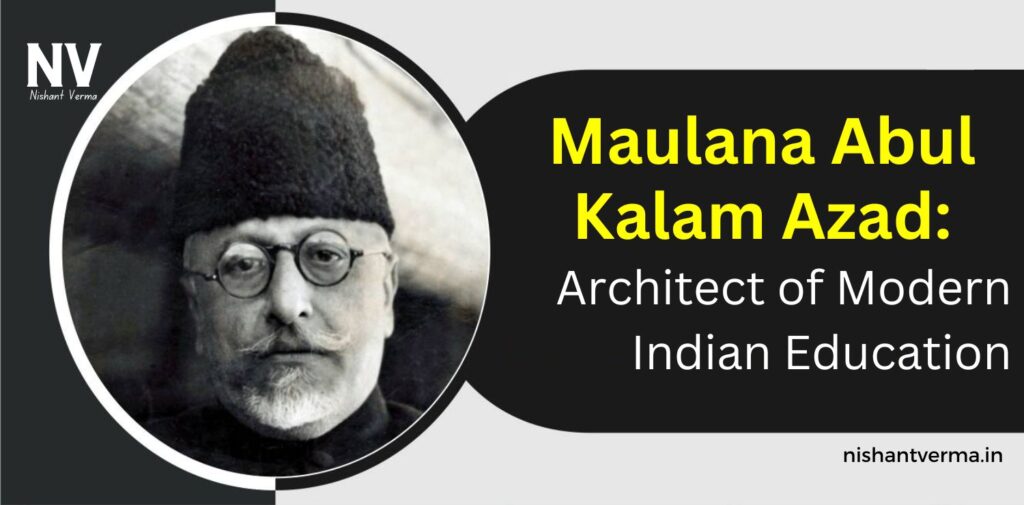Maulana Abul Kalam Azad was not only a great freedom fighter but also a visionary who played a pivotal role in shaping India’s educational landscape. As the first Minister of Education in independent India, Azad laid the foundation for an education system that would promote secularism, equality, and scientific temper. His contributions to education were so profound that even today, his ideas continue to influence Indian education.
In this article, we will explore Maulana Azad’s contributions to education, his vision for a strong and inclusive Education system, and how his efforts transformed the educational framework of the newly independent nation.
Early Life and Influences
Maulana Abul Kalam Azad was born on November 11, 1888, in Makkah, Saudi Arabia, to a family with deep scholarly roots. His father was a scholar, and his early education was influenced by Islamic teachings. However, Azad’s intellectual curiosity extended beyond religion. He was exposed to various fields of knowledge, including literature, philosophy, and history, which shaped his broad worldview.
Azad moved to India at a young age, where he became deeply involved in the struggle for India’s independence. Alongside his work in the freedom movement, he realized the importance of education in the fight against colonial rule. British colonial policies had neglected education, and this, Azad believed, was one of the key reasons why Indians were subjugated and kept in a state of ignorance.

Maulana Abul Kalam Azad’s Vision for Education
Maulana Azad firmly believed that education was the key to empowerment. His vision for education was rooted in several core principles:
- Universal Education: Azad wanted to ensure that education was accessible to all Indians, regardless of their social background, religion, or gender. He saw education as a tool for social equality and empowerment. In his view, the advancement of any society depended on the intellectual and moral growth of its people.
- Secular Education: One of Azad’s major contributions to Indian education was his commitment to secularism. He believed that education should be free from religious biases and should promote tolerance, unity, and respect for diversity. He often argued that India’s pluralistic society needed an education system that could bridge gaps between different communities.
- Promotion of Scientific and Technical Education: Azad understood the importance of science and technology in building a modern nation. He advocated for the establishment of institutions that would advance scientific knowledge and produce skilled professionals. His vision for education included a focus on both traditional knowledge and modern scientific learning.
- Strengthening of Higher Education: Azad believed that India’s higher education system needed to be reformed to produce leaders, scholars, and experts in various fields. He emphasized the need for institutions that would promote research and innovation.

Key Contributions to Indian Education
As India’s first Minister of Education from 1947 to 1958, Maulana Abul Kalam Azad worked tirelessly to bring his educational vision to life. Some of his most significant contributions include:
- Establishment of IITs (Indian Institutes of Technology): One of Azad’s most lasting contributions was the establishment of the Indian Institutes of Technology (IITs). These institutes were designed to provide world-class education in engineering and technology. Azad recognized that India’s future depended on producing skilled professionals in the fields of science, technology, and engineering. Today, IITs are among the most prestigious institutions in the world, producing some of the brightest minds who have made significant contributions to various industries globally.
- Foundation of University Grants Commission (UGC): In 1956, Azad played a key role in the establishment of the University Grants Commission (UGC). The UGC was set up to regulate and promote higher education in India. It was tasked with overseeing university education, ensuring quality standards, and providing financial support to universities. The creation of the UGC was a crucial step toward strengthening the higher education sector in India.
- Promotion of Adult Education: Azad was deeply concerned about the high levels of illiteracy in India, particularly in rural areas. He recognized that education could not be confined to schools and universities alone. It had to reach the masses. To address this, Azad focused on promoting adult education and literacy programs. His efforts helped lay the foundation for various adult education schemes that continue to operate today.
- Inclusion of Hindi and Regional Languages in Education: Azad was a strong proponent of the use of regional languages in education. While he supported the use of English for higher education and research, he also emphasized the importance of mother tongue education. Azad believed that education in regional languages would make learning more accessible and ensure that knowledge could reach all sections of society. This was a progressive approach at a time when English was the primary medium of instruction in India.
- Establishment of the Central Institute of Education (CIE): Azad recognized the importance of teacher training in improving the quality of education. In 1947, he laid the foundation for the Central Institute of Education (CIE) in Delhi, which was tasked with training teachers and educators. The CIE aimed to improve teaching methods and ensure that teachers were equipped to deal with the challenges of a diverse and dynamic educational environment.
- Promotion of Libraries and Educational Infrastructure: Azad worked on improving the infrastructure of educational institutions. Under his leadership, the government established libraries, museums, and cultural institutions to promote learning and research. Azad also recognized the importance of public libraries in creating an informed and literate society.
- Encouragement of Women’s Education: Maulana Azad was a staunch advocate for women’s education. He believed that the progress of a nation depended on the empowerment of women. Under his leadership, the Indian government took steps to improve female literacy rates and to establish institutions that would provide education to girls and women. His efforts laid the groundwork for the expansion of women’s education in the decades that followed.

Azad’s Legacy in Modern Education
Maulana Abul Kalam Azad’s contributions to education continue to shape the educational landscape of India even today. His emphasis on secularism, universal education, and scientific thinking became the guiding principles for post-independence educational policies.
The establishment of premier institutions like the IITs and the focus on research, development, and technological innovation have been key to India’s growth as a global knowledge hub. Azad’s vision of education has also helped foster a spirit of inclusion and equality, which continues to be a central theme in India’s educational policies.
Conclusion: A Lifelong Commitment to Education
Maulana Abul Kalam Azad’s work in the field of education was rooted in his deep love for India and its people. He understood that true freedom could only be achieved through knowledge and self-reliance. By laying the foundation for an inclusive, secular, and scientifically oriented education system, Azad played a key role in shaping the future of India. His contributions have left an indelible mark on the country’s educational framework, and his vision continues to inspire generations of educators, policymakers, and students.
Maulana Azad’s life serves as a reminder of the power of education in transforming societies and nations. His unwavering commitment to building a brighter future for all through education remains one of his greatest legacies.




